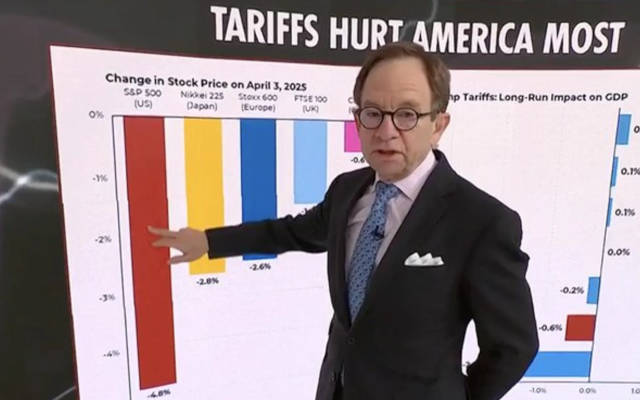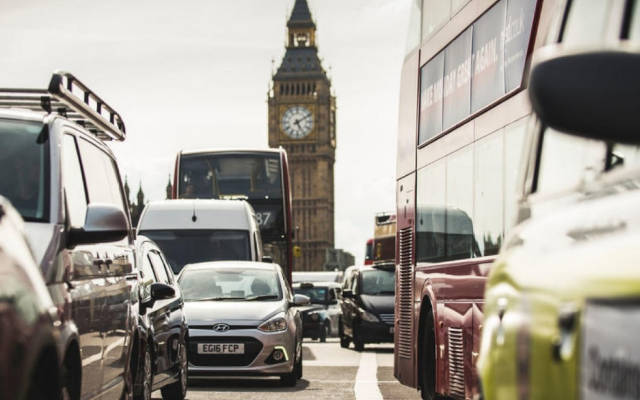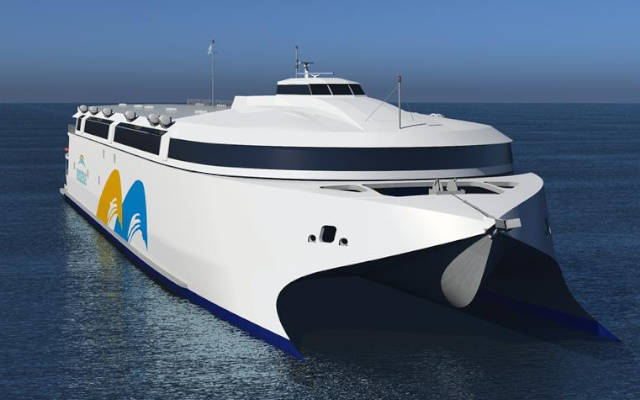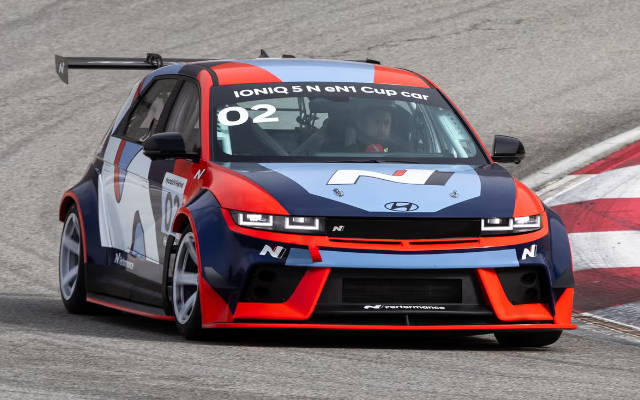 EDITOR'S PICK
EDITOR'S PICK
Who Really Pays for the Trump-Japan Tariff Deal? American EV Buyers Might
24 Jul 2025 | Synopsis
 American consumers - especially EV buyers - are the real payers in Trump's U.S.-Japan tariff deal, warns economist Steve Rattner. Tariffs on Japanese autos don't hurt Japan; they're passed through higher prices at U.S. dealerships. Even American-made EVs using Japanese parts may see cost increases. Though the deal includes Japanese investments, there's no guarantee of job gains. Increased EV prices could slow clean-tech adoption, underscoring the hidden costs of trade policy.
American consumers - especially EV buyers - are the real payers in Trump's U.S.-Japan tariff deal, warns economist Steve Rattner. Tariffs on Japanese autos don't hurt Japan; they're passed through higher prices at U.S. dealerships. Even American-made EVs using Japanese parts may see cost increases. Though the deal includes Japanese investments, there's no guarantee of job gains. Increased EV prices could slow clean-tech adoption, underscoring the hidden costs of trade policy.Dust Off : The Unexpected Side Effect Of Having More And More EVs On The Road
24 Jul 2025 | Synopsis
 Electric vehicles reduce not only exhaust emissions but also brake dust - a major urban pollutant. A recent EIT Urban Mobility study in London, Milan, and Barcelona found EVs cut brake-dust pollution by 83% due to regenerative braking, significantly improving air quality. While heavier EVs slightly increase tire wear, non-exhaust emissions (brake, tire, road dust) still drop by ~38% overall. Better health, cleaner cities - a win for electrification.
Electric vehicles reduce not only exhaust emissions but also brake dust - a major urban pollutant. A recent EIT Urban Mobility study in London, Milan, and Barcelona found EVs cut brake-dust pollution by 83% due to regenerative braking, significantly improving air quality. While heavier EVs slightly increase tire wear, non-exhaust emissions (brake, tire, road dust) still drop by ~38% overall. Better health, cleaner cities - a win for electrification.White House Is Trying To Prop Up Coal, Oil, And Gas - But The Economics Of Fossil Fuel Are Failing
24 Jul 2025 | Synopsis
 Since launching his second presidential term, Donald Trump has taken aggressive steps to re-energize the U.S. fossil fuel sector—reviving coal plants, approving pipelines, expanding mining leases, and slashing renewable energy incentives. Yet a recent report from the International Renewable Energy Agency (IRENA) confirms that renewables remain dramatically cheaper and more efficient than coal, oil, or gas-challenging the economic logic behind the fossil-fuel revival."
Since launching his second presidential term, Donald Trump has taken aggressive steps to re-energize the U.S. fossil fuel sector—reviving coal plants, approving pipelines, expanding mining leases, and slashing renewable energy incentives. Yet a recent report from the International Renewable Energy Agency (IRENA) confirms that renewables remain dramatically cheaper and more efficient than coal, oil, or gas-challenging the economic logic behind the fossil-fuel revival."
Tasmania's Incat Wins Major Electric Ferry Deal in Denmark
24 Jul 2025 | Synopsis
 Incat Tasmania lands a record-breaking contract to build two all-electric 129-meter ferries for Denmark's Molslinjen. Each high-speed catamaran will carry 1,483 passengers and 500 cars, powered by a 45 MWh battery. This milestone highlights maritime electrification's role in global decarbonization and marks a major win for Australia's clean tech exports. A bold step toward zero-emission coastal transport.
Incat Tasmania lands a record-breaking contract to build two all-electric 129-meter ferries for Denmark's Molslinjen. Each high-speed catamaran will carry 1,483 passengers and 500 cars, powered by a 45 MWh battery. This milestone highlights maritime electrification's role in global decarbonization and marks a major win for Australia's clean tech exports. A bold step toward zero-emission coastal transport.Nobody Wants Electric Supercars. But Why?
22 Jul 2025 | Synopsis
 Electric supercars are struggling. With high-performance mainstream EVs like Hyundai's Ioniq 5 N offering 0‑60 mph in ~3.4 sec for ~$68K, buyers don't see value in paying 7‑figure sums for marginal gains. Supercar brands like Rimac, Koenigsegg, Pagani, Ferrari, and Lamborghini report flat demand for full-EV hypercars. Enthusiasts miss engine sound, emotion, and unique tactile feel -EVs excel in speed but lack character."
Electric supercars are struggling. With high-performance mainstream EVs like Hyundai's Ioniq 5 N offering 0‑60 mph in ~3.4 sec for ~$68K, buyers don't see value in paying 7‑figure sums for marginal gains. Supercar brands like Rimac, Koenigsegg, Pagani, Ferrari, and Lamborghini report flat demand for full-EV hypercars. Enthusiasts miss engine sound, emotion, and unique tactile feel -EVs excel in speed but lack character."
 Si Exclusive
Si Exclusive
Rivian's Infotainment Revolution: AI at the Wheel, No Smartphone Required
11 Oct 2025 |  Rivian's infotainment system replaces CarPlay with a native AI-powered interface backed by Amazon and Volkswagen. It offers smart navigation, voice control, music/video streaming, and cloud-based personalization. AM radio is excluded, prompting bipartisan legislation to mandate its return. Autonomous driving integration is planned, with updates rolling out in 2025 and full features expected in the R2 by 2026.
Rivian's infotainment system replaces CarPlay with a native AI-powered interface backed by Amazon and Volkswagen. It offers smart navigation, voice control, music/video streaming, and cloud-based personalization. AM radio is excluded, prompting bipartisan legislation to mandate its return. Autonomous driving integration is planned, with updates rolling out in 2025 and full features expected in the R2 by 2026.
Hydrogen's Flight Path: Fuel Cells, Turbines, and the Economics of Clean Aviation
10 Oct 2025 |  Aviation is shifting from Jet A to four fuel systems: electricity, hydrogen (fuel cell and combustion), SAF, and petroleum. Fuel cells suit short-haul aircraft; hydrogen combustion may power long-range jets. SAF bridges legacy fleets. Hydrogen costs - $5-$7/kg today, possibly $2/kg by 2040 - impact ticket prices and infrastructure decisions. Airport authorities, airlines, and governments will share deployment costs. Each fuel has distinct environmental pros and cons shaping aviation's net-zero future.
Aviation is shifting from Jet A to four fuel systems: electricity, hydrogen (fuel cell and combustion), SAF, and petroleum. Fuel cells suit short-haul aircraft; hydrogen combustion may power long-range jets. SAF bridges legacy fleets. Hydrogen costs - $5-$7/kg today, possibly $2/kg by 2040 - impact ticket prices and infrastructure decisions. Airport authorities, airlines, and governments will share deployment costs. Each fuel has distinct environmental pros and cons shaping aviation's net-zero future.
Ferrari Elettrica: Electrified, Not Tamed
09 Oct 2025 |  Ferrari's Elettrica EV delivers over 1,000 hp via quad motors, hitting 0-100 km/h in 2.5s with a 330+ mile range. Its 122 kWh battery sits low for balance, paired with active suspension and rear steering. Designed by LoveFrom, the four-door GT aims to preserve Ferrari's emotional DNA. Priced around $580K, it launches in 2026 in Europe and the U.S., with hybrids and ICE models still dominating until 2030
Ferrari's Elettrica EV delivers over 1,000 hp via quad motors, hitting 0-100 km/h in 2.5s with a 330+ mile range. Its 122 kWh battery sits low for balance, paired with active suspension and rear steering. Designed by LoveFrom, the four-door GT aims to preserve Ferrari's emotional DNA. Priced around $580K, it launches in 2026 in Europe and the U.S., with hybrids and ICE models still dominating until 2030
 11 Oct 2025 16:44:44 UTC |
RECENT PODCASTS
BYD Soars - Cheaper Tesla Models - The Bolt is Back - Rivian
SEARCH RSSTREAM
 47 New Postings In Past 24 Hours
47 New Postings In Past 24 Hours
Category:mobility
Region:NoAmerica
Date:11 Oct 2025
Category:mobility
Region:AsiaPacific
Date:11 Oct 2025
Category:mobility
Region:AsiaPacific
Date:11 Oct 2025
Category:mobility
Region:Europe
Date:11 Oct 2025
Category:mobility
Region:NoAmerica
Date:11 Oct 2025
Category:autonomy
Region:NoAmerica
Date:11 Oct 2025
Category:finance
Region:NoAmerica
Date:11 Oct 2025
Category:finance
Region:NoAmerica
Date:11 Oct 2025
Category:mobility
Region:NoAmerica
Date:11 Oct 2025
Category:mobility
Region:AsiaPacific
Date:11 Oct 2025
Category:mobility
Region:AsiaPacific
Date:11 Oct 2025
Category:mobility
Region:Europe
Date:11 Oct 2025
Category:mobility
Region:NoAmerica
Date:11 Oct 2025
Category:finance
Region:NoAmerica
Date:11 Oct 2025
Category:mobility
Region:NoAmerica
Date:11 Oct 2025